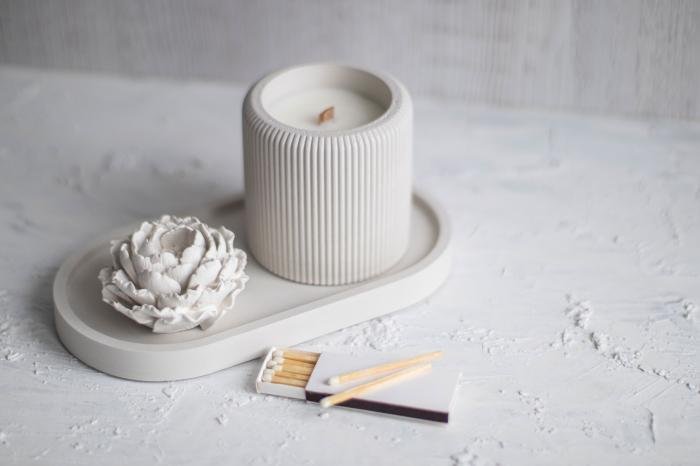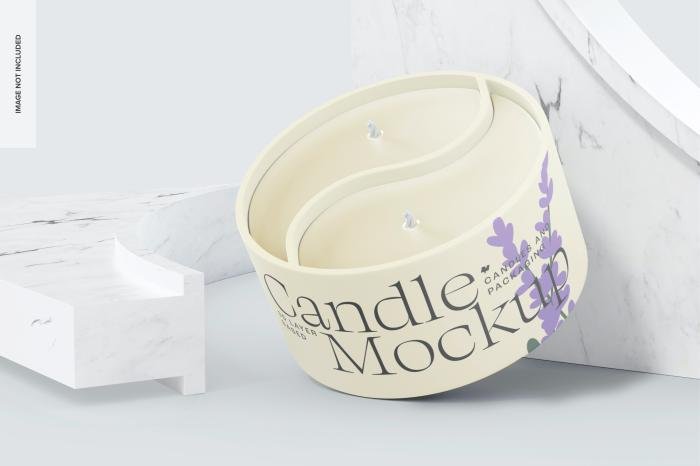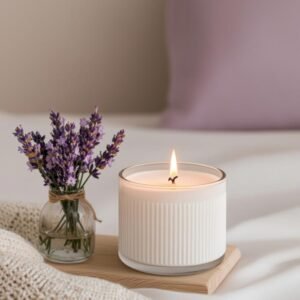Luxury candle producers face mounting pressure as discerning customers demand exceptional fragrance performance that justifies premium pricing.
Premium candle fragrance oils distinguish luxury brands through superior scent throw, extended burn longevity, and IFRA-compliant safety standards. Quality oils ensure consistent performance that meets high-end market expectations and regulatory requirements.
The luxury candle market has evolved dramatically over the past decade, with consumers now expecting sophisticated scent profiles that rival high-end perfumes.
How Does IFRA Compliance Impact Luxury Candle Fragrance Oil Selection?
Non-compliant fragrance oils risk health issues, regulatory violations, and brand reputation damage. IFRA compliance protects both consumers and producers from potential lawsuits and market rejection.
IFRA compliance directly determines which fragrance oils luxury candle producers can legally use, establishing safety thresholds that protect consumers while ensuring market access and brand credibility.

Understanding IFRA Standards for Candle Production
The International Fragrance Association (IFRA) sets global safety standards that govern fragrance oil usage limits in candles. These standards categorize products into 11 categories, with candles falling under Category 10. Each fragrance ingredient receives specific usage restrictions based on scientific safety assessments.
Luxury candle producers must verify that their fragrance oils meet IFRA’s maximum usage levels. For instance, certain allergens like linalool or limonene may be restricted to specific percentages in candle formulations. Suppliers like Loveeno provide IFRA-compliant oils with detailed certificates of conformity, ensuring producers can confidently select fragrances without safety concerns.
Impact on Fragrance Oil Selection Process
IFRA compliance fundamentally shapes the fragrance selection process by limiting ingredient choices and requiring extensive documentation. Producers must balance creative vision with regulatory constraints, often eliminating non-compliant oils regardless of their olfactory appeal.
| IFRA Compliance Factor | Impact on Selection | Business Consideration |
|---|---|---|
| Usage Restrictions | Limits concentration levels | Cost implications for reformulation |
| Allergen Declarations | Mandatory labeling requirements | Consumer transparency obligations |
| Testing Requirements | Extended lead times | Supplier verification processes |
| Documentation Needs | Certificate validation | Supply chain traceability |
This regulatory framework drives producers toward vetted suppliers who maintain comprehensive IFRA documentation. Loveeno’s commitment to providing pre-tested, compliant fragrance oils streamlines this selection process, allowing producers to focus on creating exceptional luxury candles while maintaining full regulatory compliance.
What Determines the Scent Strength and Longevity of Premium Candle Oils?
Weak fragrance throw frustrates customers and damages brand reputation. Poor-quality oils fade quickly, leaving expensive candles virtually scentless.
Premium candle oil performance depends on molecular structure, concentration levels, and oil composition. Higher molecular weight compounds create stronger scent throw and extended longevity compared to lighter molecular structures.

Molecular Weight and Evaporation Rates
The molecular structure of fragrance compounds directly impacts scent strength and durability. Heavy molecular weight components like base notes (sandalwood, vanilla, musk) evaporate slowly, providing lasting fragrance foundation. Light molecules such as citrus and floral top notes dissipate within 15 minutes, creating initial impact but minimal longevity.
Professional candle producers achieve optimal fragrance performance through balanced compositions combining fast-evaporating top notes for immediate appeal with slow-releasing base notes for sustained scent throw. Loveeno’s technical team provides detailed molecular analysis for each oil, helping producers select formulations matching their specific performance requirements.
Concentration Standards and Performance Metrics
Premium oils require precise concentration ratios for maximum effectiveness. Industry standards recommend 6-10% fragrance load (1 ounce per pound of wax) for optimal scent throw, though specific ratios vary by wax type and desired intensity.
| Oil Quality Level | Recommended Load | Scent Throw Duration | Performance Rating |
|---|---|---|---|
| Grado Premium | 6-8% | 40-60 horas | Excelente |
| Grado estándar | 8-10% | 25-40 hours | Bien |
| Basic Grade | 10-12% | 15-25 horas | Feria |
Curing time significantly impacts fragrance performance. Allowing candles to cure 24-48 hours enables deep wax penetration, enhancing both cold throw (unlit scent) and hot throw (burning scent). Quality suppliers provide specific curing recommendations for each oil formulation.
Which Luxury Candle Fragrance Oil Suppliers Meet Professional Standards?
Finding reliable suppliers means navigating countless options while quality standards vary dramatically. Poor supplier choices lead to inconsistent products and potential safety issues.
Professional luxury candle fragrance oil suppliers possess IFRA certification, ISO 9001 quality management, and comprehensive safety documentation. They provide detailed material safety data sheets and maintain consistent scent profiles.
Essential Certification Requirements
Professional fragrance suppliers must demonstrate adherence to international standards. IFRA (International Fragrance Association) certification stands as the gold standard, ensuring formulations meet global safety requirements. Suppliers should provide Certificates of Conformity documenting compliance with maximum use levels for each fragrance component.
ISO 9001 quality management certification indicates systematic quality control processes. CPSC compliance ensures products meet consumer safety regulations, while environmental certifications demonstrate sustainable manufacturing practices. Loveeno’s supplier network exemplifies these standards, maintaining rigorous vetting processes that prioritize both quality and regulatory compliance.
Supplier Evaluation Framework
| Criterios de evaluación | Professional Standard | Documentation Required |
|---|---|---|
| Safety Certification | IFRA, CPSC compliance | Certificates of Conformity |
| Quality Management | ISO 9001 certification | Quality system documentation |
| Product Consistency | ±5% scent variation | Batch testing reports |
| Asistencia técnica | Material Safety Data Sheets | MSDS for all products |
| Supply Chain Reliability | 98% on-time delivery | Performance metrics |
Testing capabilities distinguish professional suppliers from commodity providers. Look for suppliers offering custom scent development, detailed analytical testing, and comprehensive technical support. They should maintain temperature-controlled storage facilities and provide detailed product specifications including flash points, density measurements, and compatibility data for various wax types.
How Can Candle Producers Develop Signature Scents That Stand Out?
Generic candle scents flood the market, leaving your brand invisible among countless competitors struggling for consumer attention.
Develop signature candle scents through strategic perfumer collaboration, focusing on unique scent profiles, quality fragrance oil sourcing, and rigorous testing protocols that ensure consistent luxury candle branding.

Strategic Perfumer Partnerships Drive Scent Innovation
Professional perfumer collaboration transforms ordinary candle lines into distinctive signature collections. Working with experienced nose professionals enables access to exclusive fragrance compounds and advanced blending techniques. Custom fragrance development requires clear briefings about target demographics, brand positioning, and scent preferences. Loveeno’s technical team facilitates these partnerships by providing comprehensive fragrance profiles and performance specifications that guide perfumers toward commercially viable formulations.
Successful partnerships involve multiple scent iterations and consumer testing phases. Perfumers create initial concepts based on brand requirements, then refine formulations through cold throw, hot throw, and burn performance evaluations.
Quality Control and Scent Differentiation Methods
Rigorous testing protocols ensure signature scents maintain consistency across production batches. Quality fragrance oils require specific concentration levels, typically ranging from 8-12% for optimal scent throw performance. Temperature stability testing prevents fragrance degradation during candle burning cycles.
| Parámetro de prueba | Luxury Standard | Testing Frequency |
|---|---|---|
| Cold Throw Strength | 7-9/10 rating | Per batch |
| Hot Throw Performance | 8-10/10 rating | Semanal |
| Fragrance Load Capacity | 10-12% maximum | Per formulation |
| Burn Time Consistency | ±5% variance | Mensualmente |
Scent differentiation emerges through strategic note layering and unexpected fragrance combinations. Top notes create immediate impact, middle notes provide character depth, and base notes ensure lasting impression. Loveeno’s fragrance oil library contains over 500 unique compounds that enable unlimited creative possibilities for signature scent development.
Conclusión
Luxury candle success depends on selecting premium fragrance oils that meet IFRA compliance standards, deliver exceptional scent throw performance, and maintain consistent quality throughout production. Professional suppliers with comprehensive certifications ensure fragrance oil excellence while supporting signature scent development that distinguishes brands in competitive markets. By prioritizing quality standards and strategic supplier partnerships, premium candle production achieves the sophisticated performance expectations that define luxury candle brands and justify premium pricing in today’s discerning marketplace.
PREGUNTAS FRECUENTES
Q1: What does IFRA compliance mean for luxury candle fragrance oils?
IFRA compliance means the fragrance oil meets the International Fragrance Association’s safety standards for use in consumer products. For luxury candle producers, IFRA-compliant oils ensure the fragrance is safe for burning, doesn’t cause skin irritation, and meets regulatory requirements for consumer safety. This certification is essential for professional candle makers to guarantee product safety and market compliance.
Q2: How can I test the scent strength and longevity of luxury candle fragrance oils?
To test scent strength and longevity, conduct cold and hot throw tests. For cold throw, smell the oil directly and in the wax before burning. For hot throw, burn the candle in a controlled environment and evaluate scent projection over time. Professional testing includes measuring fragrance load percentage (typically 6-10% for luxury candles), monitoring scent retention over weeks, and comparing performance across different wax types to ensure optimal scent strength and longevity.
Q3: What should I look for when vetting fragrance oil suppliers for luxury candles?
When vetting suppliers, prioritize those who provide IFRA compliance certificates, detailed safety data sheets (SDS), and batch-specific testing results. Look for suppliers with transparent sourcing, consistent quality control processes, and documentation of oil composition. Reputable suppliers should offer sample testing programs, have clear labeling with expiration dates, and provide technical support for formulation questions specific to luxury candle production.
Q4: How does oil quality affect the burn performance of luxury candles?
High-quality fragrance oils directly impact burn performance by ensuring clean, even burning without sooting, tunneling, or poor scent throw. Premium oils are specifically formulated for candle use with proper flash points and compatibility with various wax types. Lower quality oils can cause performance issues like poor scent diffusion, uneven burning, or even safety hazards. Luxury candle oils undergo rigorous testing for thermal stability and consistent performance across different burning conditions.
Q5: What labeling requirements are essential for luxury candle fragrance oils?
Essential labeling includes IFRA compliance status, safety data sheet availability, recommended usage percentages, flash point information, expiration date, batch number, and specific storage requirements. Proper labeling should also include allergen declarations, ingredient transparency where required, and clear instructions for safe handling. For luxury candles, additional information about scent notes, performance characteristics, and testing documentation helps producers make informed decisions about oil selection and formulation.




